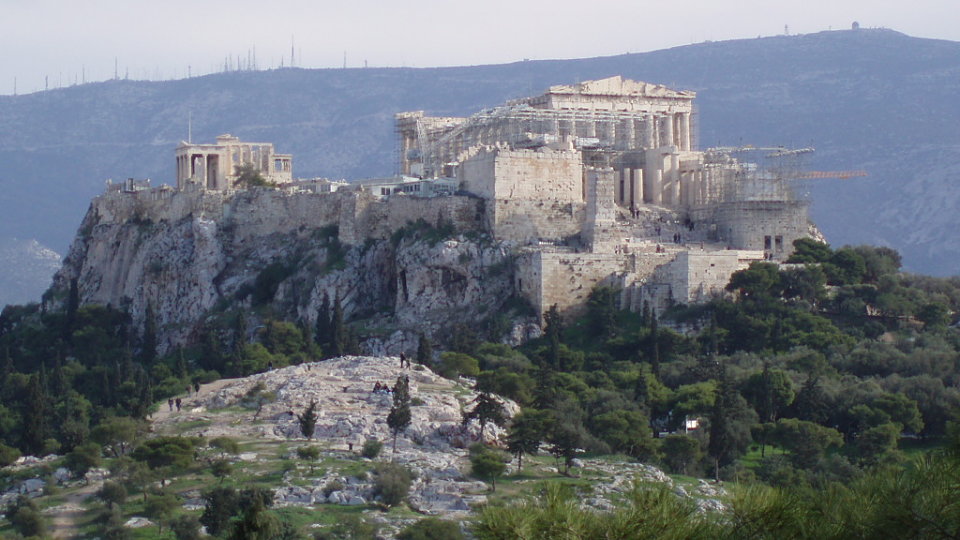Paul’s Speech to the Athenians
Luke tells us in Acts 17 that a group of philosophers began to argue with Paul. They took him to the Areopagus (Mars Hill), where some of their leaders asked Paul to explain his beliefs. Here we have a chance to see the rhetorical and oratorical skills Paul had learned as a young man in Tarsus. I find this to be one of Paul’s most compelling speeches or sermons in Acts. It gives us a sense of Paul’s approach and message when sharing Christ with those who worshiped the Greco-Roman deities. His words are found in Acts 17:22-31. Paul began with an affirmation of the people: “I see that you are very religious.” I take this as Paul’s positive way of setting up the “case” for Christ, rather than criticizing Athenians for their pagan beliefs. I think this points to Paul’s genius in sharing Christ. Too often Christians today feel compelled to criticize nonreligious people or those whose religion is different from their own. Paul did not do this. Paul went on to find a point of connection between the Athenians’ faith and his own. He noted that he had seen an altar “to an unknown God.” Once again, Paul did not criticize this altar but saw in it an opportunity to connect the God he proclaimed to a god they already admitted might exist. Paul then affirmed something central to Judaism and Christianity: God is the maker of all things and, as such, does not live in temples made by human hands. (Even Solomon, upon building God a temple, acknowledged as much.) The people at the Areopagus would have agreed with this assertion as well. Paul went on to note that the entire human race derives its existence from God, and that God “gives life, breath, and everything else” to us. Again, Paul’s listeners would have nodded their heads in agreement. At this point what Paul said was consistent with similar conceptions of God held by other Greek philosophers. Then Paul noted, “God made the nations so they would seek him, perhaps even reach out to him and find him. In fact, God isn’t far away from any of us.” In other words, the unknown or hidden God actually hopes to be found. This God came to reveal himself to us in Jesus and is quite near, as near as the air we breathe. I’m reminded that the Greek word for heaven signifies the sky—the area beyond the clouds—but also the air or atmosphere that is all around us. The pagan gods might live on Mount Olympus, but the God proclaimed by Paul was very near. Paul then offered two quotations from the Greek poets, poets he no doubt had studied in his hometown of Tarsus: “In God we live, move, and exist” and “As some of your own poets said, ‘We are his offspring.’” The first quotation may have come from the Greek poet Epimenides, who died in the sixth century b.c., and the second quotation from the Greek poet Aratus, who died in 240 b.c. Once more Paul was making the case for his faith by anchoring its truths in things the Athenian philosophers already believed. “We are his offspring” refers to the idea that all human beings are children of the one God, whether they acknowledge this or call upon his name. “In God we live, move, and exist” points, I believe, to the concept that we as human beings are dependent upon God, that God is the source of life and all that sustains it. Only after gaining such strong agreement on his case did Paul offer a brief and gentle critique of the Athenians’ worship of deities made of gold, silver, and stone. Worshiping such gods in the past was a mistake they made that Paul said God would overlook. (This and much of the rest of Paul’s speech demonstrates a God who is patient and merciful.) It’s curious to note that the quotations from Aratus and Epimenides originally referred to Zeus. Paul, like other Jewish scholars before him, adapted Greek references that were originally written of Zeus, substituting the Hebrew and Greek words for God in their place. Paul was not saying that Zeus was the same as God, only, I believe, that when anyone spoke of the greatest or highest god, whether they knew it or not, they were referring to the God. Finally Paul noted that with the coming of Christ, God sought to reveal himself to humanity. Therefore God is calling the human race to repent, or as the Common English Bible translates it, “to change their hearts and lives” (Acts 17:30). The Greek word for repentance is metanoia, which literally means “to think differently afterward,” that is, to change one’s mind after an encounter with Christ, resulting in a change of heart and behavior. Some listeners sneered at Paul’s words, but a few became believers, including a member of the Areopagus and a woman named Damaris. In Athens there is a street named in honor of Damaris. Tradition holds that she was martyred for her faith, and she is celebrated as a saint in the Orthodox Church. Paul’s ministry in Athens did not result in great numbers of converts. Though few came to faith under Paul’s leadership in Athens (and likely in many other cities where he preached as well), those who did come to faith would lay the foundation for a church that ultimately affected millions and millions of people. Athens would eventually become one of the important centers of Christianity, but it started with what Paul may have felt was a failed mission. Today’s post is an excerpt from The Call: The Life and Message of the Apostle Paul.
